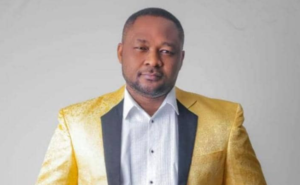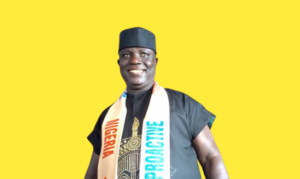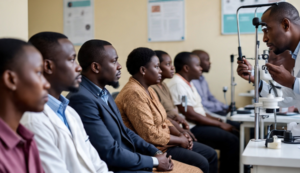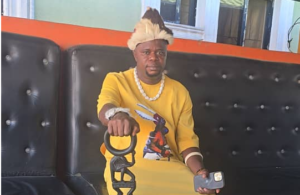Pastor Tunde Bakare and the lies of a failed state, (2). By Chuks Iloegbunam
4 min read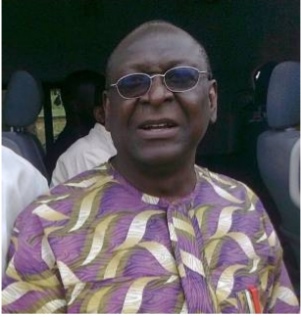
And here’s Major Adewale Ademoyega: “At the end of the first week of January, Major Anuforo and I arranged to meet Captain Udeaja, a young engineering graduate from the Royal Military College of Science, Shrivenham, UK. We met in Major Chukwuka’s house at the Ikeja Cantonment but Chukwuka himself was not there. Having briefed Udeaja generally and got his consent, we gave him his task. He was to fly a special plane provided for the purpose to Calabar on the morning of D-Day, to effect the release of Chief Awolowo and bring him to Lagos on the plane. We had already arranged for a plane of the Nigeria Air Force to be made available that morning. This was done through Major Nzegwu (not Nzeogwu) of the Air Force.” See Adewale Ademoyega: Why We Struck: The Story of the First Nigerian Coup, Evans Brothers Limited, Ibadan, 1981; pp 68-69.

The Nzeogwu and Ademoyega stories were corroborated by no less a person than Chief Awolowo, thusly: “It was learnt after the January coup that the authors had planned to release me from Calabar, fly me to Lagos, and install me as Head of State whether I liked it or not. If I refused the offer, they were prepared to govern in my name until I was persuaded to accept the offer. The authors of the coup had no plan to govern the country under a military administration.” See Obafemi Awolowo, My March Through Prison, Macmillan Nigeria Publishers Limited, Ilupeju Lagos, 1985; page 297.
In spite of incontrovertible evidence to the contrary, the myth of the Igbo coup has been sustained to this day. According to Ademoyega, the innermost circle of the coup plot was composed of three Majors: Adewale Ademoyega from Ode Remo in today’s Ogun State, a History graduate of the University of London; Emmanuel Ifeajuna from Onitsha, a University of Ibadan Science graduate; and Chukwuma Nzeogwu from Okpanam, a town bordering Asaba in present day Delta State. Besides these facts, there were 50 Majors in the Nigerian Army on the morning of the coup; 24 of them were Igbo. About 20 of these knew nothing of the coup and never participated in its execution.
The coup cost the life of Lieutenant Colonel Arthur Chinyelu Unegbe, the Quarter-Master General of the Nigerian Army. Chinyelu Unegbe was Igbo from Ozubulu in today’s Anambra State. General Aguiyi-Ironsi put down the coup; he was Igbo from Umuana Ndume in Umuhia in the present Abia State. These facts have never constituted extenuating circumstances. The coup must forever be labelled an Igbo coup, a lie from the pit of hell that continues to be used as a basis for the sporadic massacring of Ndigbo and their consignment to fourth-class citizenship in their own country.
All these lies are the reason Nigeria is a failed state. And unless these lies and countless others are finally and permanently abrogated, Nigeria’s chances of resurrection are unequivocally non-existent. In a sense Pastor Bakare is a tool in the hands of forces he scarcely recognises. The fibs he told his church members were as old as 1966. The precursors are from the top echelons of Northern Nigerian hegemony, but their lies first surfaced in book form when the Hudahuda Publishing Company of Zaria published John M. Paden’s Ahmadu Bello, Sardauna of Sokoto in 1986.
This is Professor Omo Omoruyi in The Tale of June 12; The Betrayal of the Democratic Rights of Nigerians (1993) (Press Alliance Network Limited; 1999.) “President Babangida ruled out any Yoruba person if Chief Abiola who had been with the military and the North in various capacities could not win the support of the ethno-military clique. He ruled out the Igbo on the argument that the country and definitely the North would not buy an Igbo then or in the near future. More seriously, he argued that the Yoruba and the Igbo did not have strong representation in the Armed Forces to provide them with the kind of protection they would need. This is still at the heart of democratization today” (page 253).
Professor Omoruyi, who was the Director-General of the Centre for Democratic Studies and, more importantly, Babangida’s closest confidant, sought clarification from the military President. “This was when (General Babangida) called my attention to the feeling in the North about an Igbo as President. He thought that it would violate the curse placed on the Igbo by the late Sir Abubakar Tafawa Balewa before he was executed on January 15, 1966. Sir Abubakar was quoted to have said: ‘I know you are going to kill me; you will never get a Prime Minister like me. The Igbo will suffer for twenty-five years.’” (Page 262.)

